YOLA, Nigeria – Naomi Douda’s house and business were destroyed in the darkest days of the Boko Haram conflict in 2014. The 22-year-old fled her village of Askira Uba and now lives in a displacement camp with her husband and 2-year-old son Ibrahim. Other residents have since returned to Askira Uba, but Douda is not ready.
“I haven’t gone back to my village as there is nothing left there for us. There are still some attacks there,” she says. “Life will never be as it used to be before.”
The worst days of a brutal nine-year war by Boko Haram to establish an Islamic caliphate are over. Many militants have been forced into hiding in recent months, although they still carry out attacks and raids on villages across the region.
At the height of the conflict in 2014, over 2 million people were forced from their homes. The violence in the Lake Chad region destroyed livelihoods and decimated families. Thousands of people have since returned home but hundreds of thousands remain displaced and are resisting pressure to go back before it’s safe to do so.
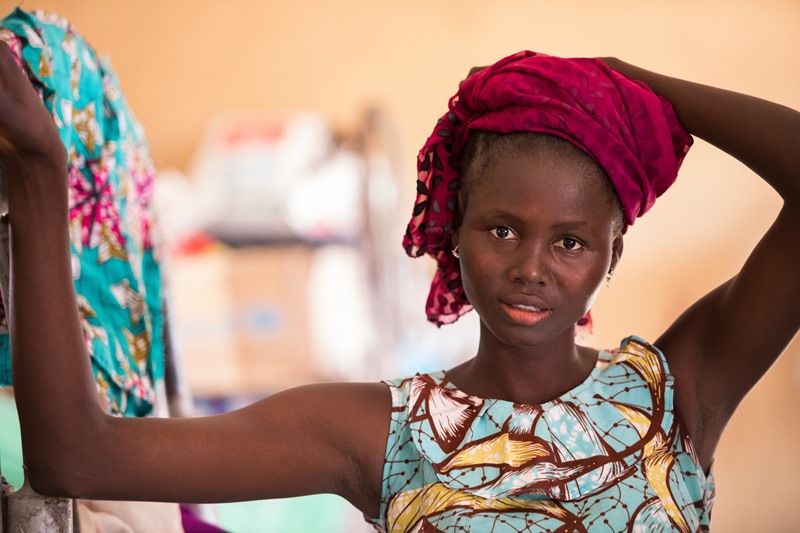
Naomi Douda, 22, is living in the camp with her 2-year-old son Ibrahim and her husband. They fled their village of Askira Uba in December 2014, and although many residents have returned, Naomi’s house and business were destroyed. “I haven’t gone back to my village as there is nothing left there for us. There are still some attacks there,” she says. “Life will never be as it used to be before.” (William Davies)
In Adamawa state, where Naomi Douda lives, around 10,000 people live in several camps for internally displaced people. Thousands more are living among the local community, either living with relatives or renting.
The local government insists that all the camps must close by the end of the year. But many of those who remain say they have nowhere to go as their houses have been destroyed in the fighting, and that their villages are still not safe to return.
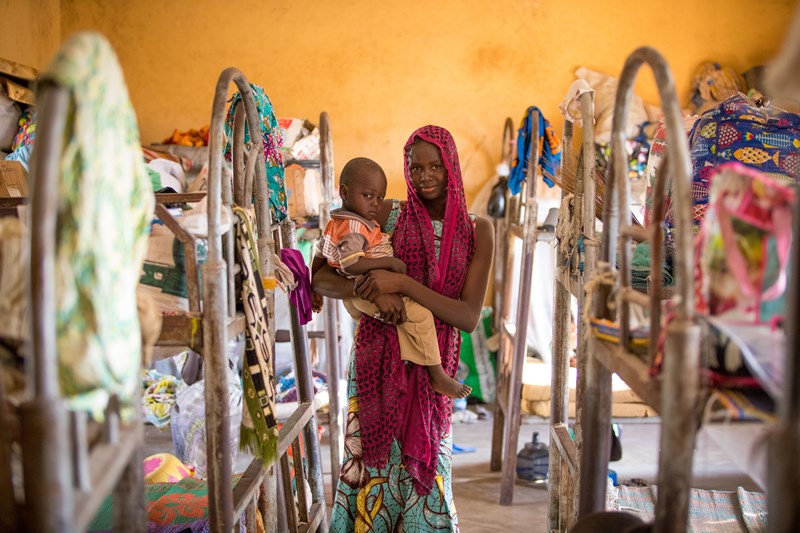
While many people in the camp live in tents, Naomi and her husband stay on a bunk bed in an old school classroom, which offers little privacy from other people. (William Davies)
Malkohi camp, where Douda lives, is a mixture of tents and people camping in a disused school classroom. Around 1,000 people live in the camp on the outskirts of Yola, which is run by NGOs and has an army checkpoint at entrance. In 2014, over 6,000 people were sheltering in the camp, but as Boko Haram has been pushed back into the forest and across the border into Chad and Cameroon, many have returned home.
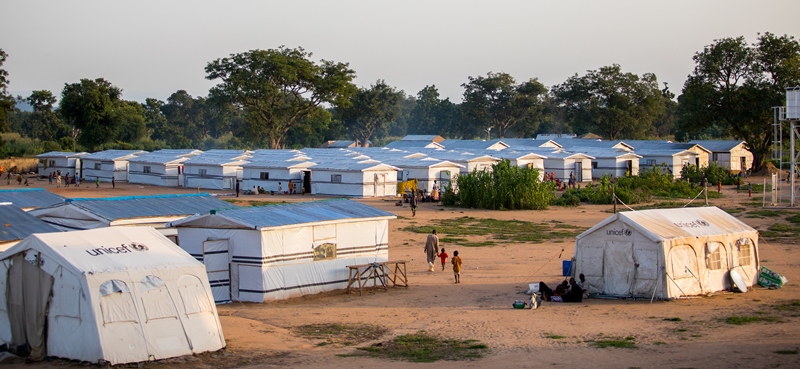
There are still over 1,000 people living at the Malkohi camp, one of three IDP camps in Yola. (William Davies)
The camp chairman, Nicolas Samuel, 45, expects more people to go home in the next few months. A father of eight children, he has been living in the camp for over three years, where he says the biggest problem is the lack of food. “Boko Haram killed my brother and burned down my church,” he says. “Most people will leave after the rainy season, going back to their own local government areas.”
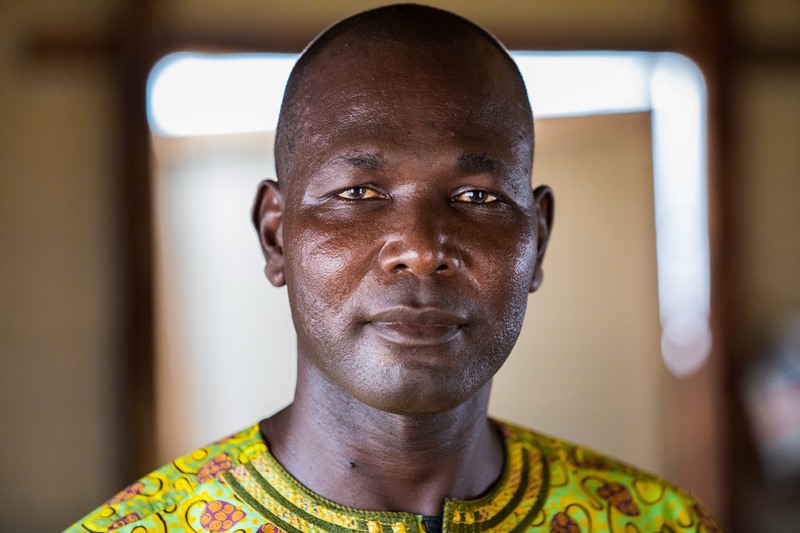
Nicolas Samuel, 45, is the camp chairman. (William Davies)
Zainab Musa, 30, is from the village of Majibi, near Gwoza in Borno state, where some of the heaviest fighting took place. “I want to go back home,” she says. “Home is better than anywhere else. If the security situation improves, then we can go home.”
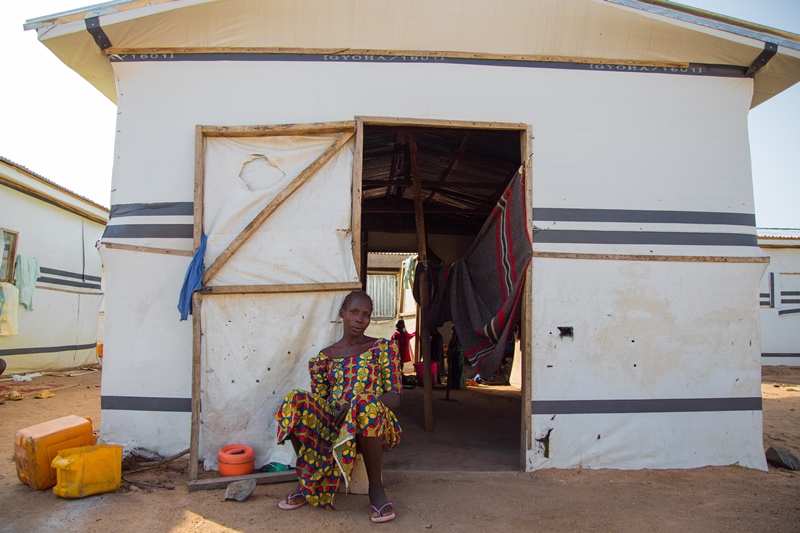
Zainab Musa, 30, sits outside her tent in the camp. She’s from the village of Majibi, near Gwoza, where some of the heaviest fighting took place. “I want to go back home,” she says. “Home is better than anywhere else. If the security situation improves, then we can go home.” (William Davies)
Fati Bukar, 60, is also from the Gwoza area. “My village was attacked and many people were killed,” she says. She has been living in the camp for three years but says it’s not safe enough to go home yet.
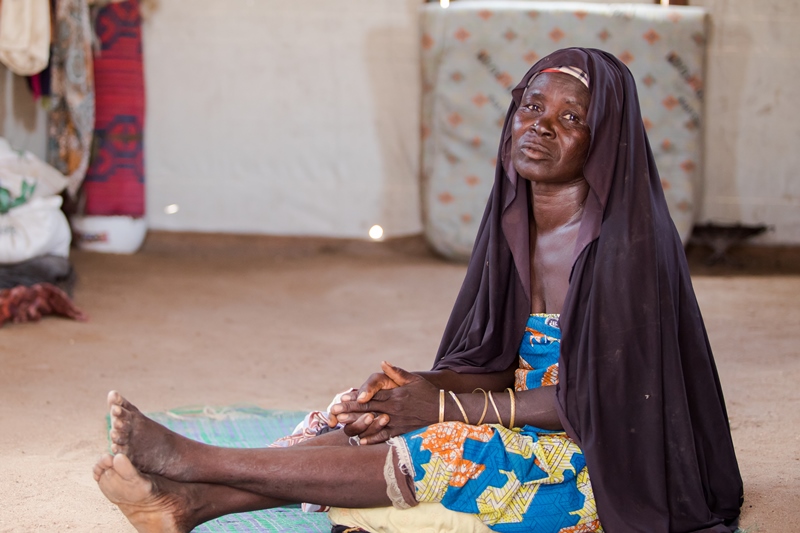
Fati Bukar, 60, has been living in the camp for three years. “My village was attacked and many people were killed,” she says. Bukar says she can’t return home as her area, Gwoza, is still not safe. (William Davies)
Lyon Ali, 35, comes from the same area. Her house was burned down in the fighting. “If the government closes the camp we won’t have anything. We can’t go back so we’ll be left with nothing,” she says. “We can’t afford to pay rent.”
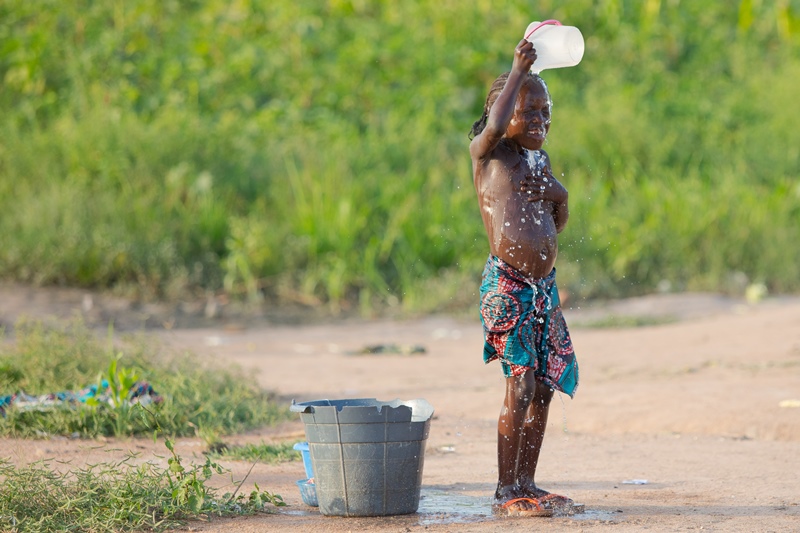
A girl takes a bucket shower at the camp. (William Davies)
Halima Abdullahi is the women’s leader of the Malkohi camp, a position that entails a small stipend. November marks her three-year anniversary at the camp, where she lives with her four children.
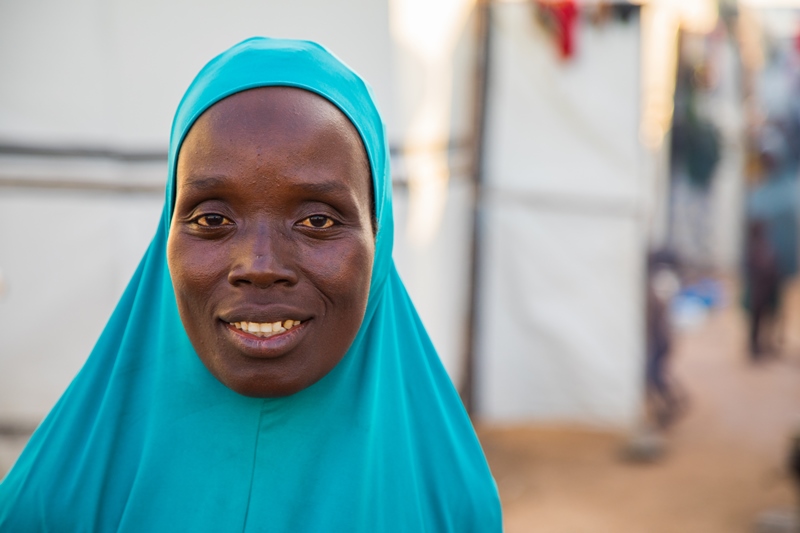
Halima Abdullahi is the women’s leader of the Malkohi camp. (William Davies)
“We were in Mubi when the conflict started. There were killings, forced indoctrinations so we had to leave,” she says. Halima’s husband has been missing since they fled. “In the process of leaving I couldn’t find him, I have lost all contact with him,” she says.
“I can’t leave as I don’t have my husband. My house in Mubi was bombed and destroyed so we don’t have anywhere to go back to. I can’t leave.”
This story has been updated to clarify the author’s professional affiliation.
